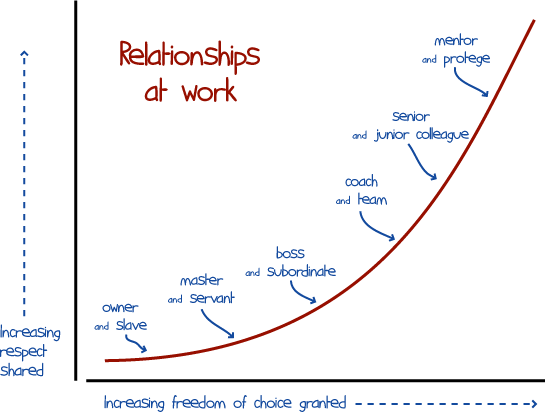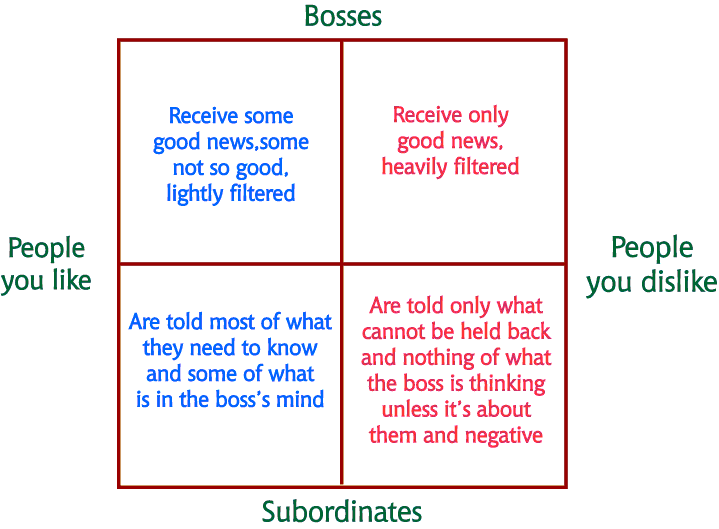Getting comfortable with control
The secret of staying in charge and relaxed is knowing what is controllable
We live in a world obsessed with control: monitoring, measuring, assessing, rating, every kind of controlling. Whenever something goes wrong, we look for who is to blame; who should have been in control and stopped the problem before it developed—but didn’t. This is wholly unrealistic. It also contributes in a strongly negative way to the anxiety and stress that has become so common.Trying to control the uncontrollable is a recipe for exhaustion and frustration. To be held responsible for what you cannot control induces anxiety and fear of unjust reprisals if it all goes wrong. The route to a better understanding of control begins with recognizing that there are three distinct facts that apply to whatever you are seeking to control:
- Some things cannot be controlled, whatever you do: the weather, other people’s thoughts, the results of most actions, external events.
- Some things can always be controlled: what you choose to say or do (with very limited exceptions), how you respond to your emotions and moods, what you believe.
- Many things that cannot be controlled directly, but can be influenced to a varying extent: public opinion, consumer behavior, other people’s actions, the effects of your actions.
The first group—the uncontrollable things—covers a great deal of what many of us are told that we must control. That’s why people get so stressed. You cannot, rationally, be held responsible for quarterly results, since they are not directly controllable by you . . . or anyone else. Part of the motivation for the scandals that erupt from time to time is people trying to to control the uncontrollable. If you can’t control results, maybe you can produce them by cheating or falsifying figures. All anyone can reasonably be held responsible for is making rational and sensible efforts to increase the likelihood of the desired results being obtained. Once that is done, the rest lies in the lap of chance.
Oddly, people treat the second group—things that are almost entirely controllable—as if they have little or no ability to control them at all.
They say they couldn’t help losing their temper (of course they could); they couldn’t stop themselves saying something hurtful (all it takes is not saying it); or they couldn’t seem to grasp what they needed to learn (which probably meant they failed to make the effort, or weren’t interested anyway).
None of this is true, yet we persist in excusing ourselves from responsibility in the one area where direct responsibility is possible: our own behavior. “I can’t help it!” people wail, when they certainly can. It may be tough or painful or unpleasant, but you are always responsible for 99% of your own actions. To pretend otherwise is to lie to yourself and to others.
Then there’s the category of what may be influenced, but not controlled. What are you responsible for there? Doing your best to influence things successfully, nothing more. You can influence customers to purchase, but you cannot make them do so by honest means. You can train, coach, support, and otherwise influence subordinates to do good work. You cannot force them to do so.
The limits of personal responsibility
It would greatly reduce stress, overwork, and macho management posturing if people recognized the limits of responsibility more clearly. It’s easy to toss slogans around and claim results are all that count and people must be judged by them. That doesn’t make it true . . . or even sensible.Equally, to allow the notion that personal behavior is somehow outside people’s control is to open the door to an endless excuse for every kind of wrong-doing and laziness. Take the rubbish spread about motivation. No one needs to be “motivated” to take necessary action. You can do it, motivated or not. Nor can I motivate you or anyone else, since motivation is a feeling and other people’s feelings are firmly in the “uncontrollable” category.
The bad news is that a great deal of current management practice is deeply flawed because it assumes that people can—and must—control what cannot be controlled. You can measure, audit, analyze, rate, and chart it all you like, but you still can’t control outcomes, results, global trends, or market movements.
The good news is that no one needs to make their actions and behavior contingent on feeling inspired, motivated, happy, excited, or any other emotion. If you see a need for action and know what to do, you can simply do it. If speaking out seems right, then speak. If staying silent is correct and helpful, say nothing. It’s always your choice; always under your direct control.
Three steps to civilized attitudes on control
Work would be a far more pleasant and civilized place if we all followed three simple rules:- Everyone must accept responsibility for his or her own speech and actions. No excuses.
- No one can be held accountable for results that are outside their control.
- Excellence is shown by controlling what can be controlled and skillfully influencing those areas where influence is possible.
That’s it. Follow those three steps and leaders would have to drop the macho nonsense of yelling for results at any price, and concentrate instead on skillful ways to draw the best from whoever works for them. Assholes and jerks would be held totally responsible for their noxious behavior, and no one would be allowed to wriggle out of personal responsibility by claiming that they “couldn’t help themselves” or “hadn’t been motivated.” Stress would be greatly reduced and no one would fear being criticised for what obviously was not their fault.
Not quite Nirvana, but a good step along the way there.
PLEASE NOTE: from August 1st, this blog will leave the Blogger platform and re-surface on Wordpress. I will leave all posts up to that point on Blogger, at the current URL.
New posts will be found from August 1st onwards at http://www.slowleadership.org/blog/
Labels: leadership, management, slow leadership











